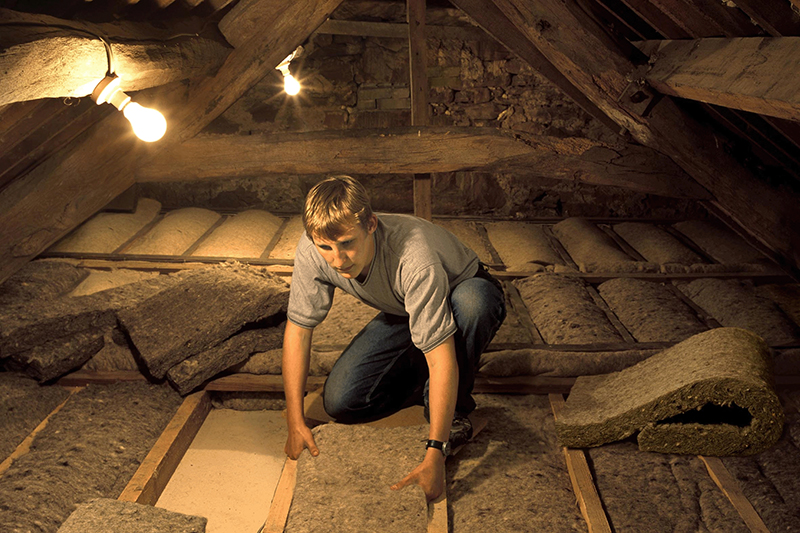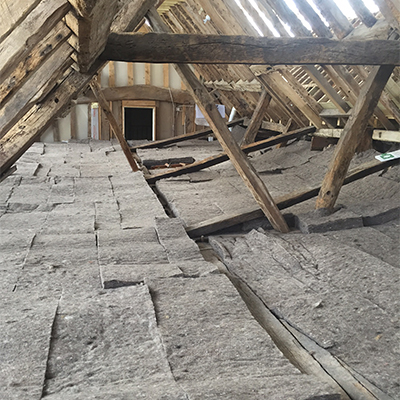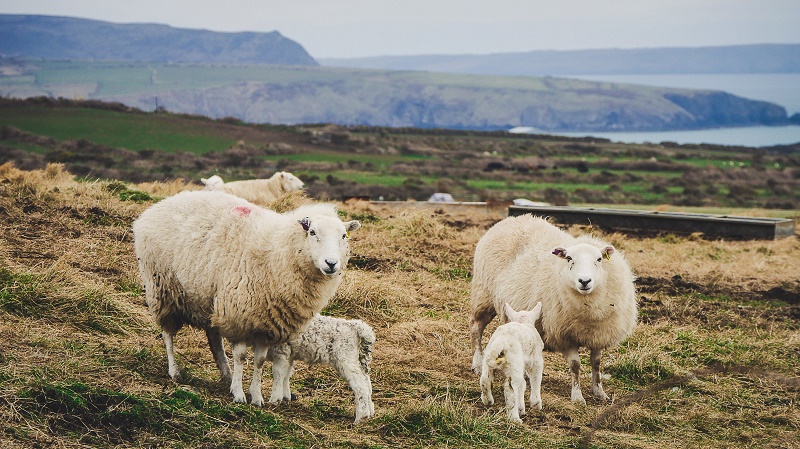The benefits of insulating with natural materials like sheeps wool
Most of us are familiar with the benefits of a woolly jumper, however when it comes down to making a choice over insulating our homes, natural insulation seems to be still in the realms of a TV ‘Grand Design’, along with over excited couples stroking the home grown, fleecy wadding before stuffing it into the roof, walls and floor of their eco-home.
Natural insulation appears more expensive, and the scientific benefits confusing. Read on for our simplified explanation of the benefits of materials like sheep's wool, advice on the different kinds of natural insulation and how to pick the best type for your property.

-
Safe to handle and easy to install
One of the main reasons sheep's wool is recommended so highly is that as a non-irritant it is really easy to work with. Whilst some people find wool itchy to touch, protective clothing and masks are not required for installation. It comes in handy packs that are robust for handling, transportation and onsite construction. Crucially many of our customers want to insulate their own lofts and the fact that wool insulation is simple and safe to handle makes it an easy D-I-Y product.
But it doesn’t just make the installation more comfortable, anyone using the loft space later will benefit due to..
-
Health benefits throughout it's life cycle
It’s not just a feel good factor you get from using a natural insulation like sheep's wool. It has low to zero toxins throughout the wool's life cycle. It also absorbs and neutralise harmful substances.
Sheep's wool is a natural protein made up of a number of different amino acid chains. These reactive areas allow the wool to absorb harmful and odorous substances including Nitrogen Dioxide, Sulphur Dioxide and Formaldehydes. It neutralises them through a process known as Chemisorption.
-
Treated to be fire safe
A great thing about sheep wool is that it doesn’t burn. The wool’s high nitrogen content makes it is just about the only fibre that not only naturally resists flaming, but self-extinguishes with the removal of flame. Additionally there's no increased risk of rodent damage with wool compared to conventional insulation alternatives.
-
Offers thermal mass
Using sheep's wool or other natural insulation is a good way of regulating your indoor temperature. By storing heat the sheep's wool prevents fluctuations. It helps to keep homes warm in the winter and cooler in the summer.
-
Vapour permeability
Wool is great at absorbing condensation ! In fact it's capable of absorbing 33% of its weight in moisture without compromising its insulating ability. The core of the sheep's wool fibre is hygroscopic (it absorbs water vapour). It's also naturally hydrophilic (it absorbs water and then releases it slowly) making it perfect in the loft space where you tend to encounter more condensation.
Natural insulation is perfect for heritage or timber framed properties. It allows the structure to breathe whilst maintaining thermal resistance. The Society for the Protection on Ancient Buildings (SPAB) provides further guidance on thermal insulation in the lofts of old buildings here.

-
A lower embodied energy than alternative insulation
This is a term to describe all the energy that has gone into it's production and transportation. Since sheep naturally produce the wool, it takes a fraction of the energy man mad equivalents use to produce it. Apart from the carbon-effect just mentioned, it's also important to consider the polluting effects of the materials both in manufacture and disposal. Natural insulation is easy to reuse, recycle or dispose of.
...you'll make a sheep a little more comfortable
Seriously! Whilst British sheep are bred to be shorn twice a year they are only fleeced once because the market for wool is so depressed.
Buying sheep's wool insulation for your attic will help make the flocks of British sheep much more comfortable!

Choose from the following natural roof insulation in our Thermafleece range:
CosyWool
Available in the form of a roll or a slab insulation. It’s a versatile insulation and is the ideal choice if you’re looking for all round performance alongside value for money. By packing tightly the CosyWool range of natural sheep wool insulation reduces transportation costs.
If space to insulate is at a premium, this high density, wool rich blend might be your best option. Specifically developed to give enhanced acoustic performance, research suggests that using 75% wool in combination with recycled fibres outperforms alternative products with a higher percentage of wool.
This is a plant based natural insulation alternative. It is suitable for use in roofs, cavity walls and solid walls, and floors proving good acoustic insulation. It has a semi-rigid structure which resists any slumping. Hemp is a fast-growing agricultural crop. Used as a 'break’ crop between other crop rotations, it allows the soil to regain the nutrients it needs to produce healthy cereal crops. Carbon negative hemp absorbs more CO2 than it produces.
